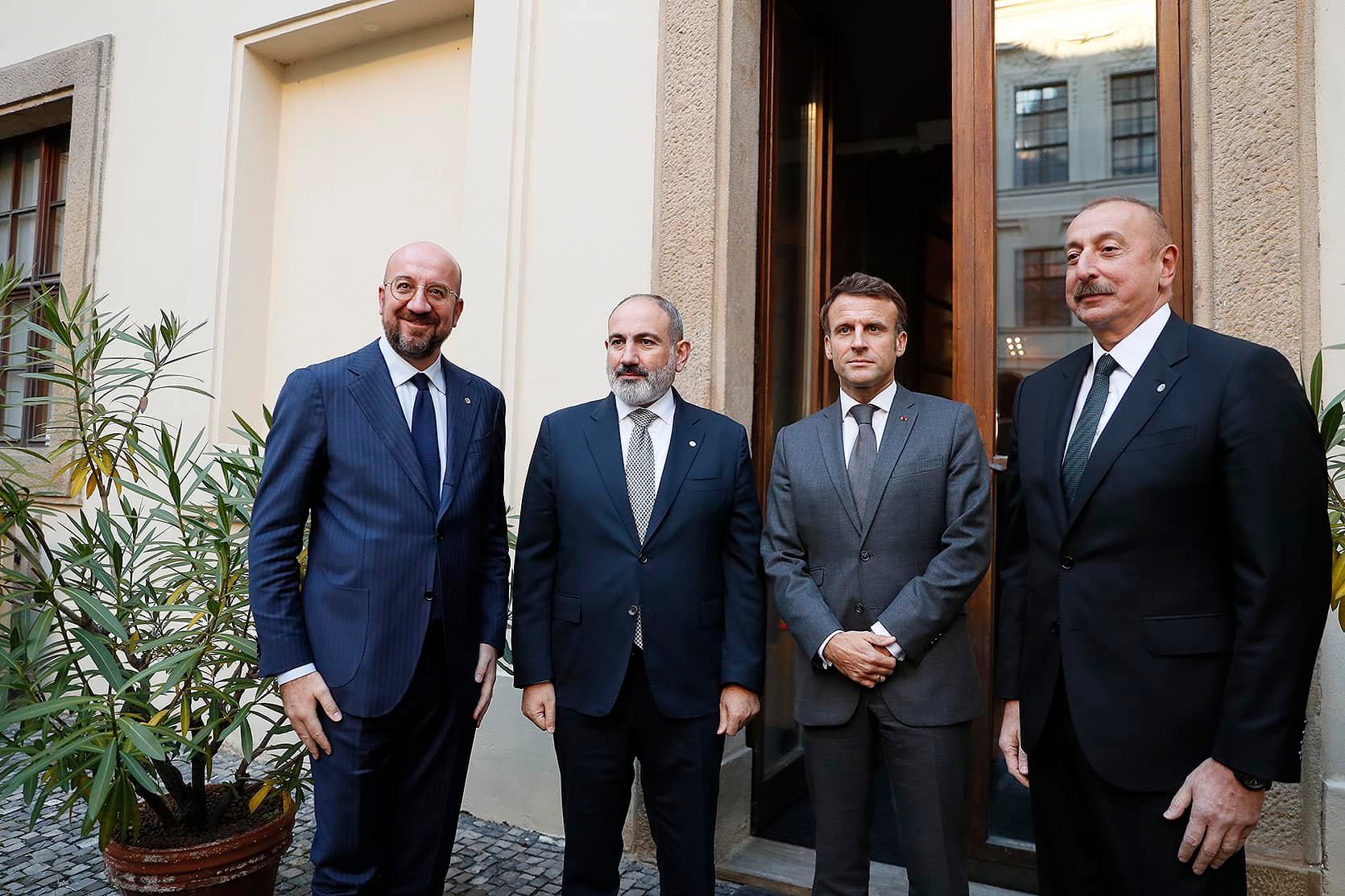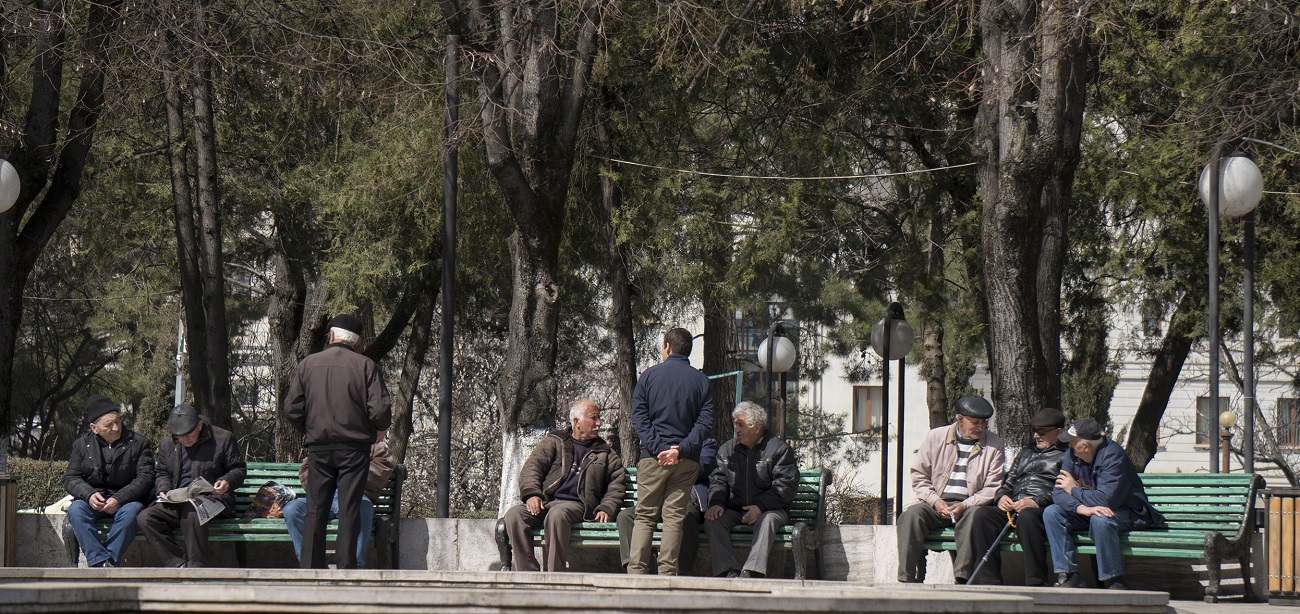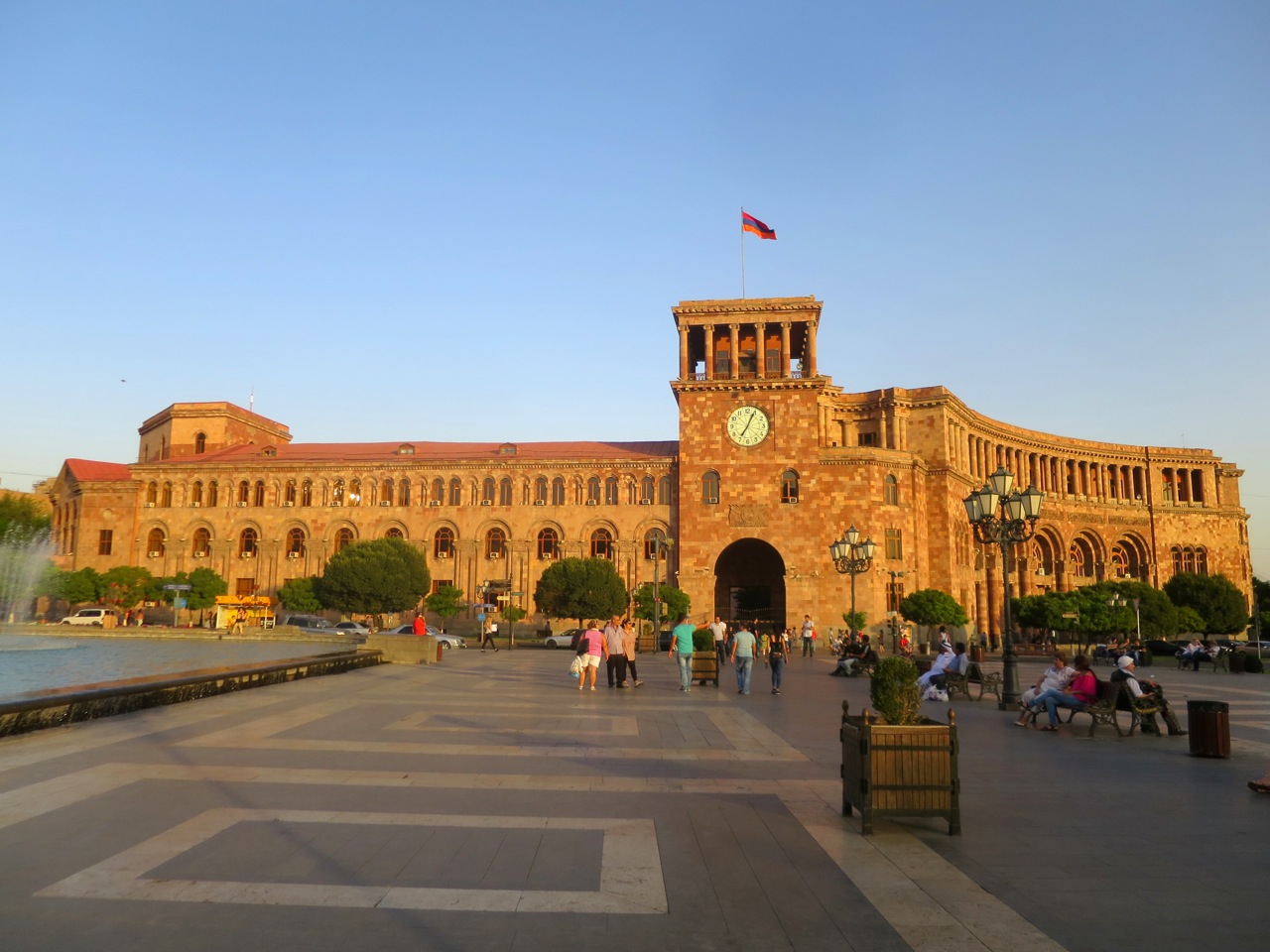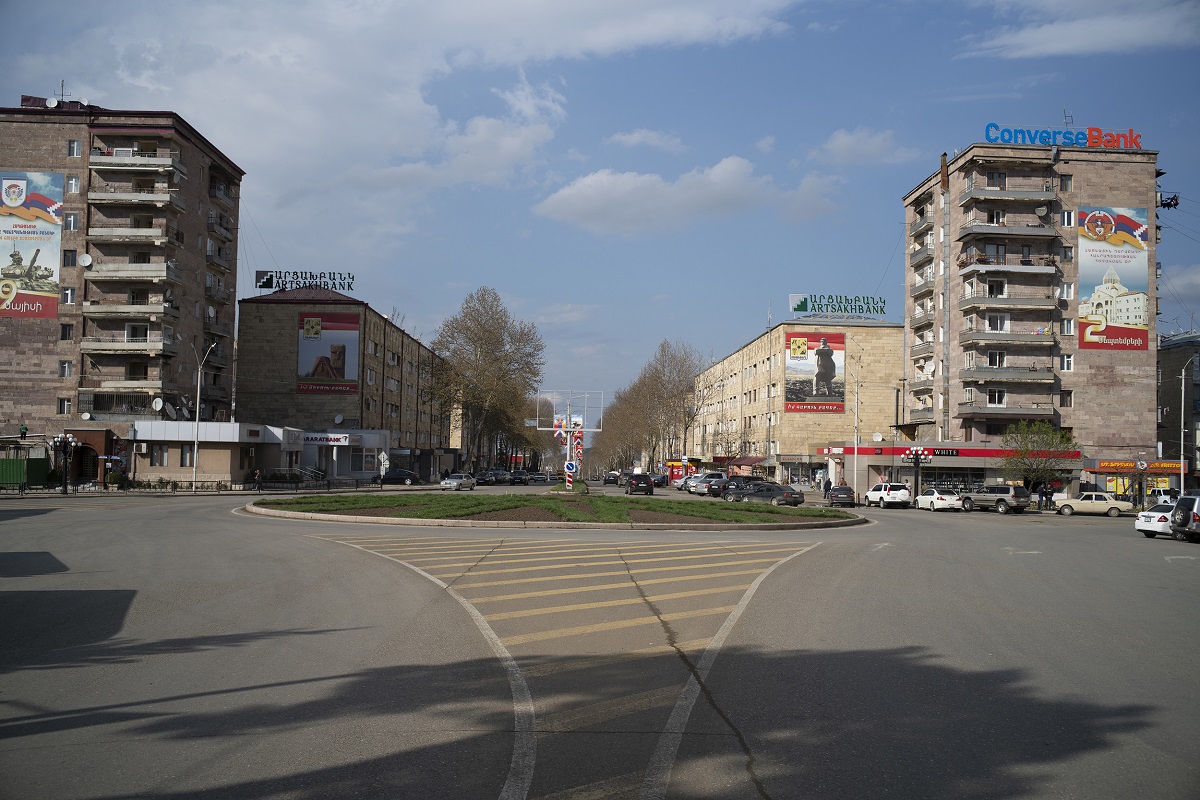“11,000 people lost their earnings”: the consequences of the 6-month blockade of NK
Six months of blockade in Nagorno-Karabakh
For half a year now the Lachin corridor, the only road connecting Nagorno-Karabakh with Armenia, has been blocked. The Ombudsman of the NK published an extraordinary report summarizing the latest data on the consequences of the blockade.
According to this document, the economy of the unrecognized republic was damaged by about 346 million dollars, about 11,000 people lost their jobs and livelihoods.
On December 12, 2022, a group of Azerbaijanis posing as environmentalists blocked the Lachin corridor. Later, the Azerbaijani media wrote that they were representatives of NGOs closely associated with the authorities. They stopped their action in April when Baku set up an official checkpoint near the bridge over the Hakari River. The Armenian authorities have been talking about the humanitarian crisis in Nagorno-Karabakh all this time, but Baku continues to insist that the road is not blocked.
Previously, videos of the movement of Red Cross vehicles and Russian peacekeepers along the road were published as evidence of this assertion. After the establishment of the checkpoint, Azerbaijan distributes footage of people passing through the checkpoint without any escort. Armenian media reports that no one has yet passed unaccompanied. According to Armenian journalists, the footage mainly shows patients leaving NK for treatment, and those who return home after the end of treatment in Armenia. There are also family members who return to NK from Armenia, accompanied by members of the International Committee of the Red Cross and peacekeepers, but during filming they are asked to leave the frame.
“Many violations of human rights have been recorded”
The Ombudsman’s report provides data on violations of both individual and collective rights of people, as well as the rights of vulnerable groups. According to the authors of the document, this list of violations “reflects the deepening humanitarian crisis and the genocidal policy of the Azerbaijani authorities against the Armenians of NK.”
The report provides the following statistics:
- the two-way movement of people along the Lachin corridor has decreased by 198 times,
- vehicle traffic has become 58 times less than it would have been without the blockade,
- vital cargo imported about 13 times less than it should have been (5,574 tons instead of 72,800 tons),
- due to the suspension of planned operations, 1,400 people lost the opportunity to improve their health by surgery,
- Azerbaijan completely or partially stopped gas supplies from Armenia for a total of 117 days,
- For 154 days, the supply of electricity from Armenia was completely disrupted.
According to official data, 120,000 Armenians live in NK. The Ombudsman’s report emphasizes that the effects of the blockade are more severely affecting vulnerable groups, including 30,000 children, 9,000 people with disabilities and 20,000 elderly.
“The goal of Baku is to close the Karabakh issue”
The report says blocking the Lachin corridor is illegal, according to a tripartite statement signed by the leaders of Armenia, Azerbaijan and Russia in the fall of 2020. The authors of the document also appeal to the decision of the International Court of Justice, which obliged Azerbaijan to ensure unimpeded traffic along the Lachin road.
“The international community has not only the right, but also an undeniable obligation to apply practical means as soon as possible to implement the decision of the highest international court and prevent further crimes of Azerbaijan.”
The office of the ombudsman believes that “all violations are committed within the framework of the state policy of Azerbaijan – racial discrimination and hatred towards Armenians.” The authors of the document state that “the actions of the Azerbaijani authorities are directed against the realization of the right of the Armenians of Nagorno-Karabakh to self-determination.” In their opinion, Baku’s goal is to close the issue of the Karabakh conflict through ethnic cleansing, “with the logic there is no people – thus no rights.”
“The systematic and consistent policy of ethnic hatred pursued by Azerbaijan, which manifested itself both during the military aggression unleashed against Artsakh in 2020, and after the establishment of a ceasefire regime by a tripartite statement of November 9, 2020, proves that any status of Artsakh under the rule of Azerbaijan is equated to ethnic cleansing and genocide of the people of Artsakh. Thus, in the context of the Nagorno-Karabakh conflict, the right to self-determination is equal to the right of the people of Artsakh to live in their native lands.
The fundamental right of the people of Artsakh to self-determination, as well as encroachments and threats to their physical existence by Azerbaijan on the basis of racial discrimination, are more than sufficient grounds for the protection of the people of Artsakh by international community, as well as the international recognition of the Republic of Artsakh based on the principle of “recognition in the name of salvation,” the report says.
People’s personal stories
The ombudsman’s report also cites stories from local residents about separated families, lack of food and medicine, declining health and psychological problems.
“All I can think about is how to keep my newborn baby warm and fed in the face of food shortages, gas and electricity cuts, hot water and heating. A month ago, David and I caught a bad cold and ended up in the hospital. I was going crazy, I was afraid of losing my child.”
“Even in my worst dream, I could not imagine that I would be separated from my child for such a long time [this woman and her husband went shopping in the Armenian city of Goris for a day, they would not return, since the blockade began on December 12, 2022 ]. Every time I call my mother and she shows me my son, I can’t hold back my tears. My mother and son froze in the winter during the rolling power outages and gas cuts by the Azerbaijanis. Sevak doesn’t like darkness, so he starts crying as soon as the lights go out. My mother has a chronic illness, she is not able to stand in line for hours for food.”
“Before the blockade, our bakery worked all night to bake bread. Our stoves run on gas, and only during gas cuts do we switch to electric stoves, as they cost the bakery so much more. But now, when there is neither a stable gas supply nor electricity due to planned power outages, including at night, the bakery works part-time. Unfortunately, we are no longer able to meet the demand that was before the blockade. Half of our employees lost their jobs. To deprive people of bread means deliberately subjecting the people to hunger.
“I have lost my main source of income due to the blockade as the greengrocer where I work has been closed since December 2022. Since vegetables and fruits are mainly imported from Armenia, the blockade immediately hit us, we were forced to close the store almost among the first. Now I can’t support my large family. My wife is pregnant with our sixth child, but the pregnancy is at high risk as she is constantly under stress due to the blockade and the uncertainty of our future. She needs to have regular checkups, eat right and take her pills, but right now we can’t afford all that.”
“I need insulin injections several times a day, as I have the last stage
diabetes. I have to do it myself, because I live alone, my husband died during the first war in 1993. And the daughter’s family lives in Yerevan. She cannot come to me and take care of me, as we are separated by a blockade. The main problem is that there are no sufficient and stable supplies of insulin. There are no products in stores that would suit my special diet. And I physically cannot stand these lines for food, as I have a disability. Lately I’ve been feeling exhausted. I feel like I’m slowly fading away. I can’t stand on my feet for long and want to sleep all the time. Sometimes I feel like I can die alone in my apartment without anyone noticing.”
Armenian Foreign Ministry: “Baku is preparing the ground for another aggression”
Official Yerevan commented on the blockade of NK, which has been going on for half a year. The Armenian Foreign Ministry condemned “the ongoing severe restrictions on the fundamental rights and freedoms of 120,000 people,” despite the binding decision of the Hague Court and numerous appeals from international structures.
The Ministry of Foreign Affairs also issued a statement regarding recent frequent reports from Azerbaijan about “violation of the ceasefire regime” by the Armenian side. The Armenian Foreign Ministry called them “false information”, emphasizing that in the newsletters published by Russian peacekeepers, violations of the ceasefire regime were recorded only from the Azerbaijani side.
“Given Azerbaijan’s already traditional experience of providing “information support” before the next use of force and artificially placing responsibility for subsequent actions on the other side in advance, Armenia has serious fears that the military-political leadership of Azerbaijan, contrary to all its obligations, is preparing the ground for the next aggressive actions and ethnic cleansing in Nagorno-Karabakh,” Armenian diplomats warn.
Follow us – Twitter | Facebook | Instagram
Six months of blockade of Nagorno-Karabakh






















